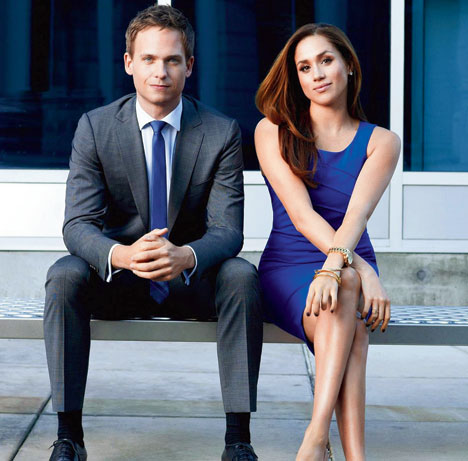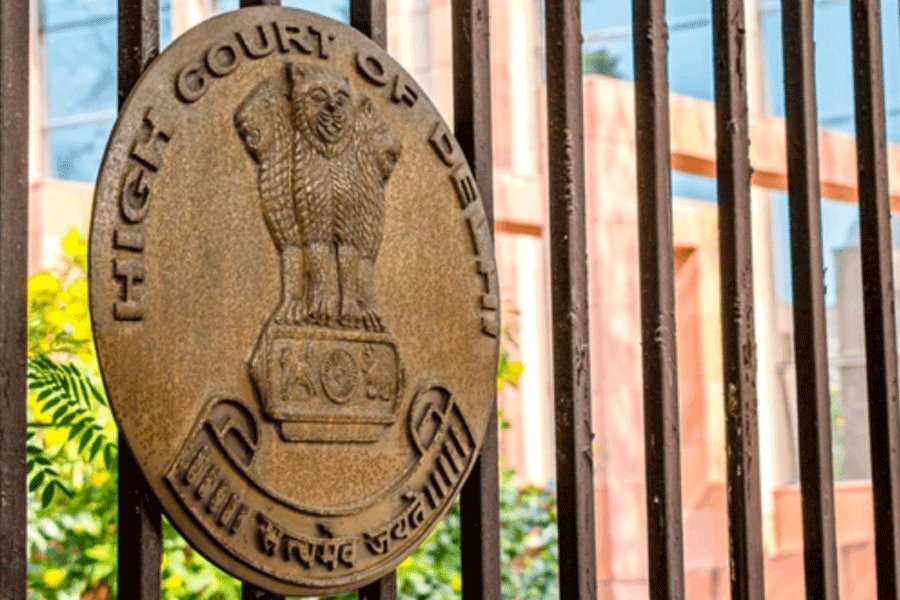
With 4 millions books in print and 2.2 million followers on Instagram, Rupi Kaur is a global youth icon. The Indian-Canadian poet was in Calcutta to perform her spoken word poetry at Tata Steel Kolkata Literary Meet, which was co-hosted by Victoria Memorial Hall in association with The Telegraph from January 22 to 27. t2 caught up with the 25-year-old at Taj Bengal after her session.
Take us through your childhood experiences, especially those that shaped your writing...
Growing up in a home (in Canada) in which there was lots of reflection and talking about poetry... I think a lot of the way that I think and the way that I navigate the world comes from the teachings of Sikh poetry. Spending years and years listening to a lot of Sufi music and Punjabi music — I draw a lot of my inspiration from there.
For example, in Sikh poetry or in Sufi music, I love how when we talk about longing in those arts, longing for your beloved and longing for the divine are kind of one and the same. I think that’s so beautiful... I think in a lot of the poetry that I’m talking about love, that longing for the divine and the beloved and nature could be seen as one. I’m trying to bring in those traditions and customs, because that’s how I see the world, and especially when you’re living in the West, and the majority don’t see it that way, you’re like, ‘Oh, this is how I see it, and I wanna share that.’
What do you tap into when you write?
It’s that voice that is constantly thinking or even overthinking (smiles). I feel like I’m this cup, and I’m overbrimming, it’s like somebody left the tap on and stuff is spilling everywhere. And so to sort of control that, I write, I draw, I have to turn to art to compartmentalise it.
What is this that is spilling over?
Thought and emotion. Emotion like how passionately I feel about a certain issues... if you look at the first chapter of milk and honey, most of those poems have to do with the violence that’s inflicted on women’s bodies and those were the first poems that I ever wrote that I was really proud enough to share. When I first started to perform spoken word, those poems were all about that. They aren’t published because I wrote them years ago and I don’t think they’re very good (laughs).

Creating a space for myself
A number of your contemporary ‘insta-poets’ are women of colour from immigrant families, such as Warsan Shire, Lang Leav, Nayyirah Waheed and Yrsa Daley-Ward. Why do you think this medium has appealed so much to poets like you and to your readers?
I think because in those Western countries that we live in, there’s so little space for us. A lot of the poetry and a lot of the literature we grow up reading doesn’t reflect our identity or culture or the loss and traumas that forced us to actually be in those places. And so we have these really difficult relationships with being in the West, because all the trauma that brought you to this place, and then you see your parents and family and community suffering more — where do you go when those institutions and systems aren’t built for you and aren’t publishing you?
Then you turn to things like the Internet, because they’re accessible, they’re free. What’s beautiful is that you’re publishing and sharing and nobody’s telling you what you’re allowed and not allowed to talk about. And the readership really just finds you and I think that readership’s connection to that art is so strong because we’re all so hungry.
When I was self-publishing, I was told by so may people not to self-publish, especially authors themselves and creative writing professors. They were like, ‘The last thing you want to do is to self-publish. It’s embarrassing!’ Like you’re closing the gates on the literary scene, it’s not respectable. But they were also like there’s no market for poetry, so nobody is going to publish your book. And there’s also no market for this (her kind of work).
Like, where does this fit it in the Canadian landscape, right? I was suggested to push to magazine and anthologies and journals. But it’s so funny, because the journals and anthologies and literary magazines, if you open them up, there’d be something like, ‘Oh, on the Rocky Mountains or the St. Lawrence river….’
And I’m like, ‘I am talking about being brown and what it’s like to carry so much sexual trauma… how does this fit into your dialogue about this mountain that your ancestors had to come and break through to build a road?’ That’s why I kind of ended up self-publishing and creating this space for myself.
Social media is helping millions access your poetry but it’s also causing young people a lot of distress, in terms of abuse, trolling, self-esteem issues, body image issues. What do you feel about the Internet?
Oh, god! My relationship with the Internet is as complicated as everybody else’s. I think I am really expected to say that it is so great, because it’s given me a voice and a platform… and it has. But I also have to be honest with all of the people who use that space to interact with me. Because... (pauses) I know what it does to me.
It’s like this large space that you just get lost in… it’s a great place to go to compare yourself to other people and feel like you are not doing anything. And I think that’s the worst part about it. It’s why I try to never go on it. Because it’s like an endless scrolling game.
I also realise that I am part of the problem. We showcase our best sides on the Internet, whether it’s a purposeful decision or not. And when we showcase only those sides, life can look perfect. So, I understand how I am also part of that anxiety that I might be giving to young women… and that is hard. I challenge myself to try to figure out how I can make them feel less anxious.
There are so many days when I am just so exhausted and I am dealing with so many things, and I’ll take my phone, I’m scrolling through and I’m like, ‘Oh my god, this person got this, this person did that, oh my god, their 10th book is coming out! What the hell have I been doing?!’ I’ve just been rolling around crying all day.
I feel we really have to talk about how the Internet affects mental health in young people. I think it’s a very serious issue. I’m around lots of anxiety, depression is on the rise because of it… and those are real things.
How do we use it for the good things but also help young people pull themselves out of it and realise that they are enough. And it goes back to the question of self-love, because we’ve struggled so long to love ourselves in the real world and now we have to do it in another world too?! That’s really hard and annoying! Young people are already dealing with so much.
I always tell my friends, ‘I know we use the Internet, we rely on the Internet so much for our work, but we have to be in a place of confidence and self-preservation to a point where the Internet can disappear tomorrow and we should be okay.’ That’s what the aim should be, I think.
I was trying to fight colonialism
You said you use only small letters in your poems and no punctuation except the full stop as a tribute to the Gurumukhi script....
Actually, I’ve always loved the visuality of lower case. Before a book is a book or a poem is a poem, I already imagine and feel it in my body. Like this book (the sun and her flowers), although most of it was written in the last two years, three years ago, I was already imagining what the photography or the video that would go alongside it would look like.
How things feel are so important, beyond the words. There was a point, one summer when I was listening to only Punjabi music... I was trying to fight colonialism and all of these things as a really passionate 20-year-old, fresh into university and just wanting to change the world… and I was like, ‘But how can I really challenge it if I am using the language like this?’
That’s when I started to write in Punjabi and it was really, really bad (smiles). I can do conversational Punjabi but there’s the beauty of poetic Punjabi that I can’t do. So then I was like, maybe there are ways that I can pair the two in the way that I paired the illustrations with the words.
So I looked at my writing and I felt that I was almost kind of already doing that… how do I push this further? Growing up, when we would sing kirtan, each verse was like four lines only but you could sit around and analyse it for hours and also sing it in so many different ways, depending on the raga.
That’s how I came upon it. And it was so funny, because I didn’t think that anybody would notice it but it made so many people so angry! So many people in the West were like, ‘How could you?! You’re just ruining our language!’ And I was like, ‘Now I’m gonna do it even more. I’ll never change it now, if you are so mad about something that you shouldn’t even care about.’ (Laughs)
Why did you choose spoken word poetry and not just poetry?
I came to spoken word poetry first, without really knowing that it was called ‘spoken word’. I used to call it storytelling. I would perform at local open mics, writing something that was like four pages long and it had… the way broken English has a narrative arc, something like that.
I was performing for probably two-ish years and then I saw a YouTube video in my dorm room, it was the poet Sarah Kay. She had a TED Talk and it was called ‘If I should have a daughter, instead of Mom, she’s gonna call me Point B...’ I pressed play and she starts performing this poem and something just woke up in me.
I was like, ‘Whoa, she’s doing what I am doing!’ I mean she’s doing it a lot better (smiles) and it’s so cool. So she finishes the poem and says this is what spoken word is. That was such a powerful moment, because it gave me the language to describe what I am doing.
About making people angry, your fragmented free verse style has been accused of being too simple and not literary enough. Why do you think there is this backlash and what do you have to say to them?
Oh my gosh (smiles)… I’ve always been writing like this and I’ve always been sharing it (on the Internet), but the backlash happened when suddenly the success was too much for people to sort of digest, I think.
It was like, poetry is a literary thing and it has a space over there… so how in the world can this book of poetry be sandwiched between Stephen King and John Green for 90 weeks on The New York Times bestseller list?! When things happen for the first time I think the world is like, ‘No, no… it doesn’t make sense to us!’ We do that in so many areas and so many industries. When things are shifting, we are very resistant to them.
Also it’s a lack of understanding. I too have never taken the opportunity to describe why I write the way I write — why did that line break right there? When I am writing, when I am deciding where a line’s gonna break, I’m singing it in my mind.
I come from a tradition of music and oral poetry. It also might not rhyme, hence you think it’s ‘free verse’, just a rambling of thoughts, but there are inner rhymes and I’m counting syllables and I know the way that poem is going to dance off my tongue when I’m on stage.
But not everybody reads it like that... that’s why I always urge everyone, ‘Just come to a show and you’ll see why things are broken up the way they’re broken up.’ Because the dance happens in a particular way. When you are reading it on your phone or in the book in your own voice — which isn’t wrong — but when you hear it on stage, it just sounds different. That’s where I think the audiobook helps. Because then I get to actually read it and present it.
What do you say to those people? You say nothing. Because you have to stay too busy focusing on what’s ahead, which is greatness, always (smiles).
I always write in the feminine voice
It’s interesting that you say sun and ‘her’ flowers, when typically we assign a masculine gender to most universal ideas, like God...
Because… (smiles) oh, my goodness, I challenge! I’ve had a very complicated relationship with Sikhi (the Sikh way) and I’ve always, always, always challenged it. But one thing that I realised is that I’m doing exactly how Sikhi came into being, to challenge everything and to question everything.
And so when people are going around saying god is a he, he, he, I’m like, ‘But why, why, why?’ To me, the idea of the universe seems very feminine, and when I’m reading this poetry, and I’m reading this verse, it feels very feminine to me, nature feels very feminine to me, and we call it Mother Nature, too, right?
I try not to make it intentional, because I was also like scared of making people really mad, because you know, when it comes to God, especially, and those conversations, people are sort of passionate about it. But there are many moments in which I refer to God as a her, not because I think that’s right, but because, should we not challenge these notions that we’ve just come to accept? Why do we have to label this thing that’s so giant and so beautiful to so many people? Why do we have to make that a certain gender? I think the reason that the sun and her flowers came to me was a play on the word ‘sunflower’.
I was going through a really rough time and watching way too many Bollywood movies! I was like, ‘Oh my god, my heart is broken! Nobody gets me, but sunflowers do.’ ’Cause they’re so devoted to the sun, like the way they rise and they fall with the sun and how they rotate with it. I thought that was so stunning. It goes back to tying longing with the divine and nature and love with a partner, and I was like, ‘Whoa! This thing that I can feel for another human being, nature feels that, too.... And I was like, ‘Sunflowers are my favourite,’ and so I wrote the poem.
It’s in chapter four. The guy asks, ‘Why are you obsessed with sunflowers?’ and the woman responds, ‘Because of how they worship the sun’. I wrote that poem, it was November 2014, and (the title) the sun and her flowers just popped in my brain. I was like, hey, this is the title!
I always write in the feminine voice, so I had to use ‘her’, because I feel like we are all suns. We’re all such powerful forces of energy and I wanna write about the different things and the hurdles and the experiences we go through, so perhaps a flower can present that, like all the different things.
I wanna be constantly growing
Many of us first heard about you when Instagram took down your post on menstrual blood. Tell us what you were experiencing at that point...
I never in a million years thought that that would happen, ’cause it was a school project. We were studying a visual rhetoric course. My degree is based on rhetoric studies (at the University of Waterloo, Ontario). We were talking about how when we’re looking at art, or when we’re looking at an image, it’s actually perceived differently depending on the space it’s in. So, one theorist gives the example of the Mona Lisa, and how we feel differently about her when we actually see the real version of her, versus how do you feel when she’s on a stamp, or the side of a mug, or huge on the side of a building.
I was like, what if I take the exact same image and put it in different spaces on the Internet? I also put it in the university classroom and a university gallery. It’s so funny, because my project sort of came to life and the teacher gave me like a 110 per cent... it was so great (grins)! Instagram is this place that is like perfectly packaged and I was suddenly challenging that. When they took the photo down, I was like, ‘No, you didn’t!’
Because, what’re you talking about? This woman is fully clothed, and this is the exact position that 50 per cent of the world wakes up in, and that’s considered ‘unsafe’? That’s the message I got, ‘This image is considered unsafe for our community guidelines’. Yet, you have pornography websites that are able to stay up and running with verified accounts and half a million followers and that isn’t wrong? How harmful is that to a woman’s experience and her sexuality and sensuality? That’s when I got all fired up and I decided to fight back. And then, boom! Everybody found out about it. And then I was like, ‘Uh-oh! Why did I do that?’ But I have no regrets.
You have four million copies in print at 25. Where do you go from here?
I don’t know (laughs).
Well, you said the twenties are the warm-up (in her poem timeless)...
Yeah, they are! Shouldn’t they be? Because you have to learn and grow. I wanna constantly be growing. So, if I’m constantly growing and that’s my path then, I don’t know, hopefully, by the time I’m 50, I’m selling 50 million books (laughs)! But I wanna continue to write... longer prose. Poetry, I’ll always write, but I think I wanna explore other art too.
Name: Rupi Kaur
Age: 25
Wish her on: October 25
Find her at: @rupikaur_ on Instagram and Twitter
Books to her name: milk and honey and the sun and her flowers
Her story: Rupi was born in Punjab and immigrated to Canada with her parents when she was four. She now lives in Toronto.
Themes: Through her spoken word poetry, Rupi has explored themes like love, loss, abuse, gender, the immigrant experience, sexuality, her Punjabi roots, femininity and feminism.
WORDS TO KNOW
Instapoets: Poets who share their writing, often accompanied with illustrations, on the photoblogging site Instagram. They are often criticised for ‘publishing for Likes’ and for not conforming to literary standards. They themselves don’t like the term ‘Instapoet’ and prefer ‘Poets on Instagram’.
Also look up: Lang Leav, Atticus, Christopher Poindexter, Harnidh Kaur.
Spoken word poetry: Simply put, it’s poetry intended for performance. According to poetryfoundation.org, it is characterised by rhyme, repetition, improvisation and wordplay and often uses music, sounds and dance.
Also look up: Sarah Kay, Phil Kay, Anis Mojgani, Aranya Johar, Arati Warrier, Shantanu Anand, Nandini Verma, Nupur Saraswat.
WOC: Abbreviation for woman of colour. Poets like Rupi explore the experience of being a woman of colour extensively in their work.
Also look up: Warsan Shire, Nayyirah Waheed, Yrsa Daley-Ward, Karuna Ezara Parikh.

Who are your favourite poets?
My favourite poet, for sure, has to be Khalil Gibran. I travel with The Prophet everywhere. I own like 10 copies, because every time I see a new edition with a new cover, I feel the need to buy it (laughs). And I love Sharon Olds. It’s so interesting, ’cause when I first discovered Sharon Olds, I was already writing, and it was like, you know that poetry that kicks you in the stomach? I felt like that. She’s writing about feminism and being a woman and she’s challenging so many things way before I was born.
And currently I’m discovering Sylvia Plath. When I read her as a child, I couldn’t understand why she was like, so morbid! And now I’m like, ‘Oh, I get it. But gosh, is it a good thing, I get it? I shouldn’t!’ (Laughs)

Samhita Chakraborty and Rushati Mukherjee
Rupi Kaur is my youth icon because... Tell t2@abp.in










